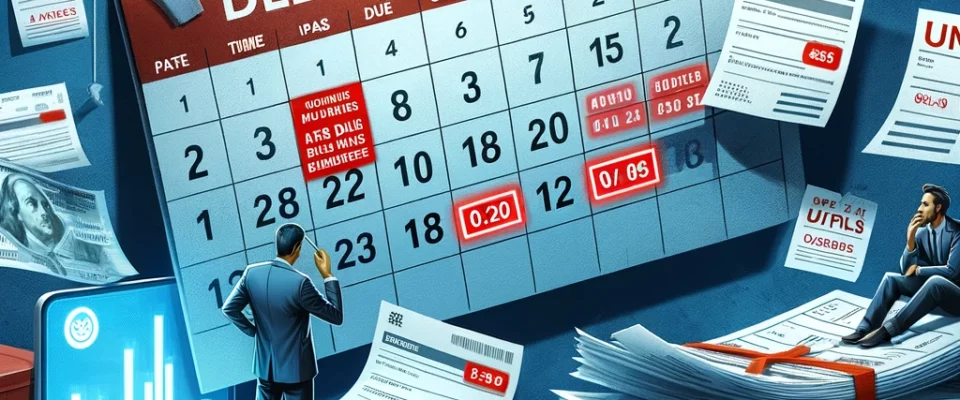In the realm of commercial transactions, late payment penalties are a significant concern for business. According to Article L 441-10 of the French Commercial Code, late payment penalties are moratory interests, due the day following the payment date indicated on the invoice.
The French Commercial Code provides:
I. Unless otherwise stipulated in the terms and conditions of sale or agreed between the parties, the period for payment of sums due may not exceed thirty days after the date of receipt of the goods or performance of the service requested.
The period agreed between the parties for payment of the sums due may not exceed sixty days after the date of issue of the invoice.
By way of derogation, a maximum period of forty-five days from the end of the month following the date of issue of the invoice may be agreed between the parties, provided that this period is expressly stipulated in the contract and that it does not constitute a manifest abuse in relation to the creditor. In the case of a periodic invoice within the meaning of Article 289(I)(3) of the General Tax Code, the period agreed between the parties may not exceed forty-five days after the date of issue of the invoice.
II. The terms of payment referred to in I of article L. 441-1 specify the conditions of application and the rate of interest for late payment penalties payable on the day following the payment date shown on the invoice, as well as the amount of the fixed indemnity for recovery costs due to the creditor in the event that the sums due are paid after this date. Unless otherwise stipulated, which may not however set a rate lower than three times the legal interest rate, this rate is equal to the interest rate applied by the European Central Bank to its most recent refinancing operation plus 10 percentage points.
Late payment penalties are payable without the need for a reminder. Any professional who is late in making a payment is automatically liable to pay the creditor a fixed indemnity for collection costs, the amount of which is set by decree. Where the recovery costs incurred exceed the amount of this flat-rate compensation, the creditor may request additional compensation, subject to justification. However, the creditor may not invoke the benefit of these indemnities when the opening of safeguard, recovery or liquidation proceedings prevents payment of the debt owed to it on the due date.
III. Subject to specific provisions more favourable to the creditor, where an acceptance or verification procedure is provided for to certify the conformity of the goods or services to the contract, the duration of this procedure is set in accordance with good commercial practice and, in any event, does not exceed thirty days from the date of receipt of the goods or performance of the services, unless expressly stipulated otherwise by contract and provided that this does not constitute an unfair term or practice within the meaning of the penultimate paragraph of article L. 441-16 or Article L. 442-1.
The duration of the acceptance or verification procedure may not have the effect of either increasing the duration or shifting the starting point of the maximum payment period provided for in the second, third and fourth paragraphs of I, unless expressly stipulated otherwise by contract and provided that this does not constitute an unfair term or practice, within the meaning of the penultimate paragraph of article L. 441-16 or article L. 442-1.
Key Points:
- Moratory Interests: The late payment penalties stipulated by Article L 441-10 of the Commercial Code cannot be combined with statutory late payment interests. Their purpose is to compensate the creditor for the prejudice suffered due to the payment delay.
- Application: General terms and conditions of sale must specify the application methods and interest rate of these penalties, in accordance with Article L 441-10. This requirement is derived from EU Directive 2011/7, incorporated into French law, aimed at combating late payments in commercial transactions.
- Nature of Penalties: Contrary to what their name might imply, late payment penalties do not constitute a penal clause. The Court of Cassation has confirmed that they are indeed moratory interests (Cass. com. 2-11-2011 n° 10-14.677 F-PB).
- Capitalization of Interests: Moratory interests can be capitalized under the conditions outlined in Article 1343-2 of the Civil Code, thereby enhancing their effectiveness in compensating the creditor.
- Application of General Rules: Although both late payment penalties and statutory late payment interests share the same objective—to compensate for the damage caused by payment delays—the specific rules of the Commercial Code take precedence in the context of commercial transactions, following the principle of general law (C. civ. art. 1105).
Legal References:
- Cass. com. 24-4-2024 n° 22-24.275 F-B, Sté française d’étude et de formation (SFEF) v. Sté Urban Way
- Article L 441-10 of the French Commercial Code
- Article 1231-6 of the French Civil Code
- EU Directive 2011/7 of 16 February 2011
For further questions on late payment penalties or to seek personalized legal advice, feel free to contact our law firm.

